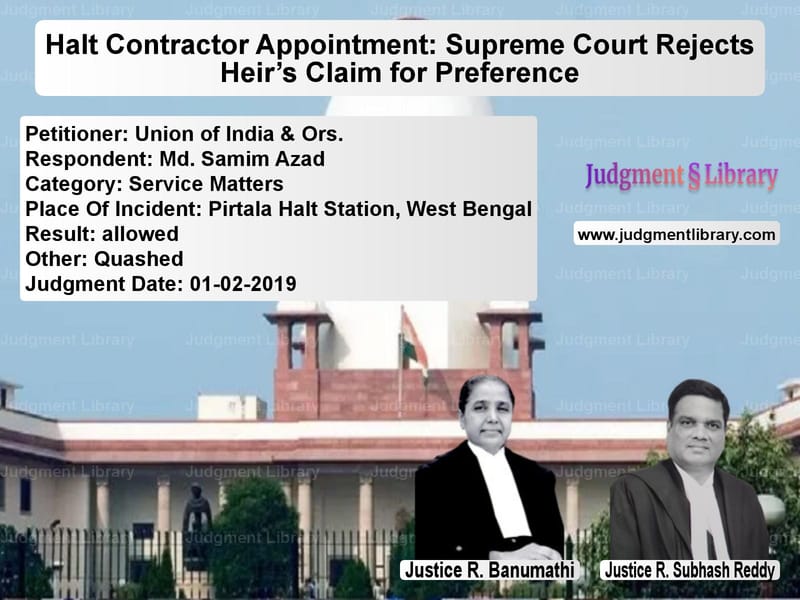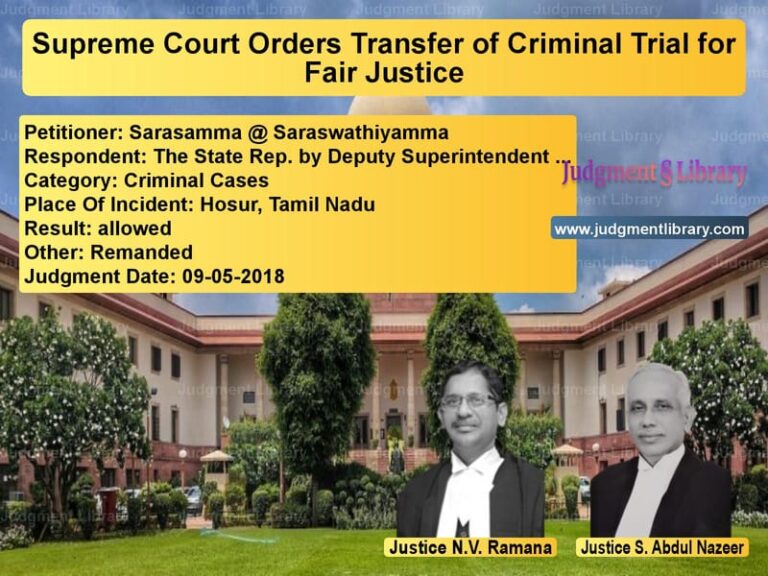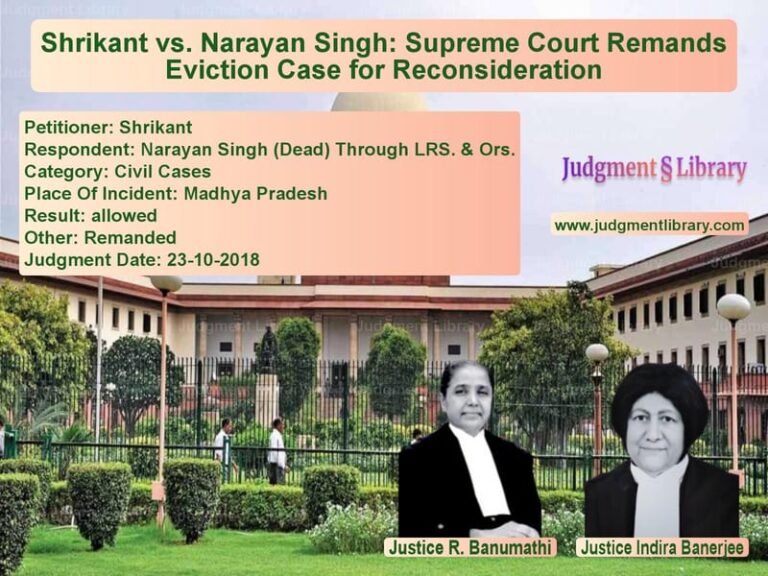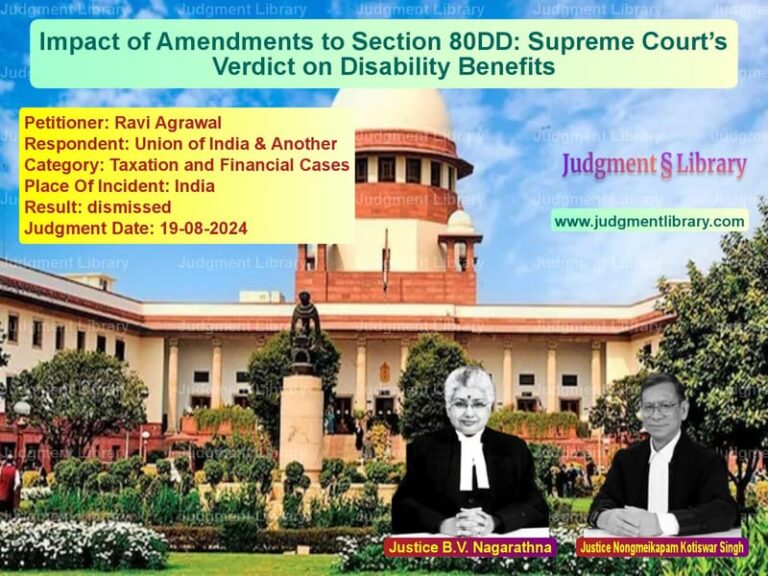Halt Contractor Appointment: Supreme Court Rejects Heir’s Claim for Preference
The case of Union of India & Ors. vs. Md. Samim Azad revolves around the appointment of a halt contractor at a railway station and whether an heir of a deceased contractor is entitled to preference under railway guidelines. The Supreme Court examined whether the Calcutta High Court erred in directing the appointment of the respondent as a halt contractor based on an expired contract of his deceased father.
Background of the Case
The father of the respondent, Md. Samim Azad, was a halt contractor at Pirtala Halt Station under the Eastern Railway. His contract expired in 2010, and no renewal was granted. Despite the expiration, the respondent was allowed to sell tickets at the station on a temporary basis while the railway authorities initiated a fresh selection process.
In 2017, the railway administration invited applications for the appointment of a new halt contractor through a public notification. The respondent participated in the selection process but was unsuccessful in the draw of lots.
Aggrieved by his non-selection, he filed a writ petition before the Calcutta High Court, seeking preference in appointment based on a railway circular dated 17.05.1999, which provided for consideration of heirs of deceased halt contractors along with other applicants.
High Court’s Ruling
The Single Judge of the Calcutta High Court dismissed the writ petition, ruling that the contract of the respondent’s father had expired in 2010 and did not exist at the time of his death in 2016. Therefore, no preference could be granted under the 1999 circular.
However, the Division Bench of the High Court reversed this decision, holding that since the respondent had been permitted to work at the halt station after his father’s demise, he should be given the benefit of the railway circular and appointed as the halt contractor.
Petitioner’s Arguments
The Union of India and Eastern Railway argued:
- The respondent had no legal claim as the contract of his father expired in 2010.
- The railway circular only granted preference if a valid contract existed at the time of the contractor’s death, which was not the case here.
- The respondent voluntarily participated in the selection process and lost in the draw of lots. Having done so, he could not later claim preference.
- Allowing such a claim would set a precedent where expired contracts could be revived, leading to administrative complications.
Respondent’s Arguments
The respondent, Md. Samim Azad, contended:
- He had been managing ticket sales at the halt station after his father’s death and should be given preference in appointment.
- The railway authorities themselves allowed him to continue in his father’s place, thereby acknowledging his role.
- The 1999 circular clearly stated that heirs should be considered along with other applicants and given preference if all other factors were equal.
Supreme Court’s Observations
The Supreme Court analyzed the 1999 railway circular and made the following key observations:
“The preference under the 1999 circular is applicable only when the deceased contractor had a subsisting contract at the time of death. Since the contract in this case had expired in 2010, no preference could be granted.”
The Court further held:
“Merely because the respondent was permitted to work temporarily in his father’s place does not confer upon him any legal right to claim preference in the selection process.”
On the respondent’s participation in the selection process, the Court emphasized:
“The respondent voluntarily participated in the selection process and accepted the draw of lots. Having failed in the process, he cannot later claim preference.”
Final Judgment
The Supreme Court ruled:
- The contract of the respondent’s father had expired in 2010, and there was no renewal.
- The 1999 circular did not apply as there was no subsisting contract at the time of death.
- The respondent’s temporary role in ticket sales did not create any legal entitlement.
- The High Court’s order directing his appointment was set aside.
- The appeal by the Union of India was allowed.
Conclusion
This judgment reaffirms that expired contracts cannot be revived through administrative discretion or temporary arrangements. It also underscores the principle that once a candidate participates in a selection process and is unsuccessful, they cannot later seek preference through alternative claims. The ruling provides clarity on the interpretation of railway guidelines concerning the appointment of halt contractors and prevents undue claims based on expired contracts.
Petitioner Name: Union of India & Ors..Respondent Name: Md. Samim Azad.Judgment By: Justice R. Banumathi, Justice R. Subhash Reddy.Place Of Incident: Pirtala Halt Station, West Bengal.Judgment Date: 01-02-2019.
Don’t miss out on the full details! Download the complete judgment in PDF format below and gain valuable insights instantly!
Download Judgment: Union of India & Ors vs Md. Samim Azad Supreme Court of India Judgment Dated 01-02-2019.pdf
Direct Downlaod Judgment: Direct downlaod this Judgment
See all petitions in Employment Disputes
See all petitions in Public Sector Employees
See all petitions in Judgment by R. Banumathi
See all petitions in Judgment by R. Subhash Reddy
See all petitions in allowed
See all petitions in Quashed
See all petitions in supreme court of India judgments February 2019
See all petitions in 2019 judgments
See all posts in Service Matters Category
See all allowed petitions in Service Matters Category
See all Dismissed petitions in Service Matters Category
See all partially allowed petitions in Service Matters Category







